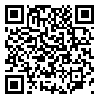







































BibTeX | RIS | EndNote | Medlars | ProCite | Reference Manager | RefWorks
Send citation to:
URL: http://psychologicalscience.ir/article-1-2875-en.html
Background: Social anxiety disorder, as one of the most common psychological disorders, is characterized by a persistent fear of negative evaluation in social and performance situations, significantly impacting the individual’s and social quality of life for those affected. Existing treatments include psychological interventions, such as cognitive-behavioral therapy and pharmacotherapy, particularly the widespread use of selective serotonin reuptake inhibitors. However, the available evidence regarding the effectiveness of these methods, both individually and in combination, especially in diverse populations, remains limited and scattered.
Aims: The aim of the present study was to investigate the impact of psychological interventions and pharmacotherapy on improving social anxiety through a systematic review.
Methods: This systematic review included research findings from 2016 to 2025, which were retrieved from databases such as SID, Springer, Scopus, PubMed, ScienceDirect, and Google Scholar. The search was conducted using English keywords: Psychological Interventions, Pharmacotherapy, Cognitive-Behavioral Therapy (CBT), Serotonin Reuptake Inhibitors (SSRIs), Treatment Efficacy, Social Anxiety Disorder (SAD), Combined Therapy (Psychotherapy + Medication), as well as their Persian equivalents: psychological interventions, pharmacotherapy, cognitive-behavioral therapy, serotonin reuptake inhibitors, treatment efficacy, social anxiety disorder, combined therapy (psychotherapy + medication). Based on inclusion criteria, 38 out of 50 reviewed articles were selected, and the results were categorized, summarized, and reported.
Results: This systematic review indicates that Cognitive-Behavioral Therapy (CBT) is the first-line treatment for Social Anxiety Disorder (SAD), leading to sustained improvement in symptoms and social functioning. Pharmacotherapy, particularly SSRIs, also reduces symptoms but is associated with side effects. Combined psychotherapy and pharmacotherapy are more effective in severe cases, although psychotherapy alone yields comparable results. Personalizing treatment is essential to achieving optimal outcomes.
Conclusion: The findings suggest that both psychological treatments (especially CBT) and pharmacotherapy are effective in reducing social anxiety symptoms, with combined therapy yielding better results in severe cases. Novel interventions, such as virtual reality and mindfulness-based therapies, also show promising potential.
Received: 2025/03/14 | Accepted: 2025/05/16 | Published: 2025/09/19
| Rights and permissions | |
 |
This work is licensed under the Creative Commons Attribution-NonCommercial-NoDerivatives 4.0 International (CC BY-NC-ND 4.0) License. |
This work is licensed under the Creative Commons Attribution-NonCommercial-NoDerivatives 4.0 International (CC BY-NC-ND 4.0)





